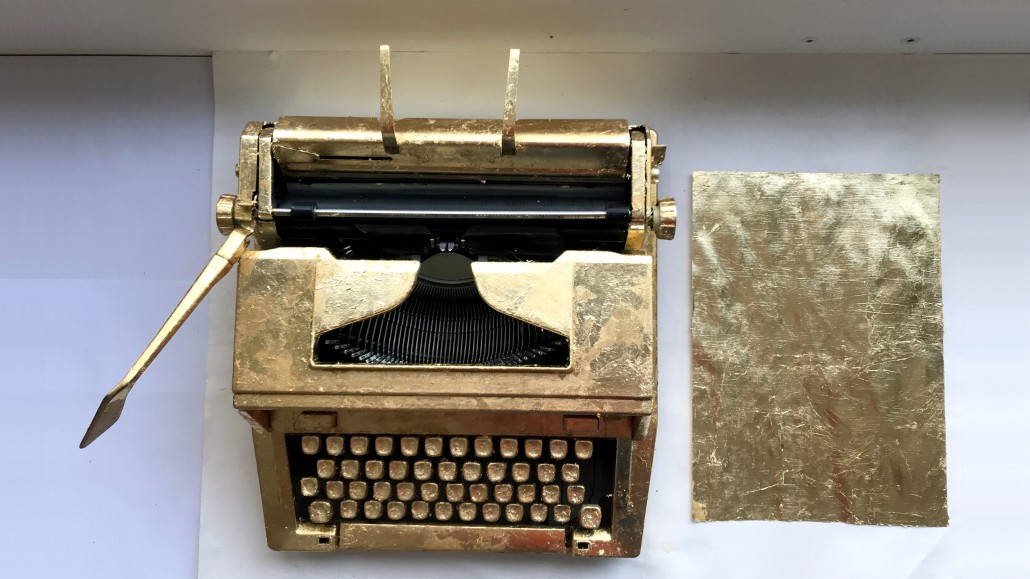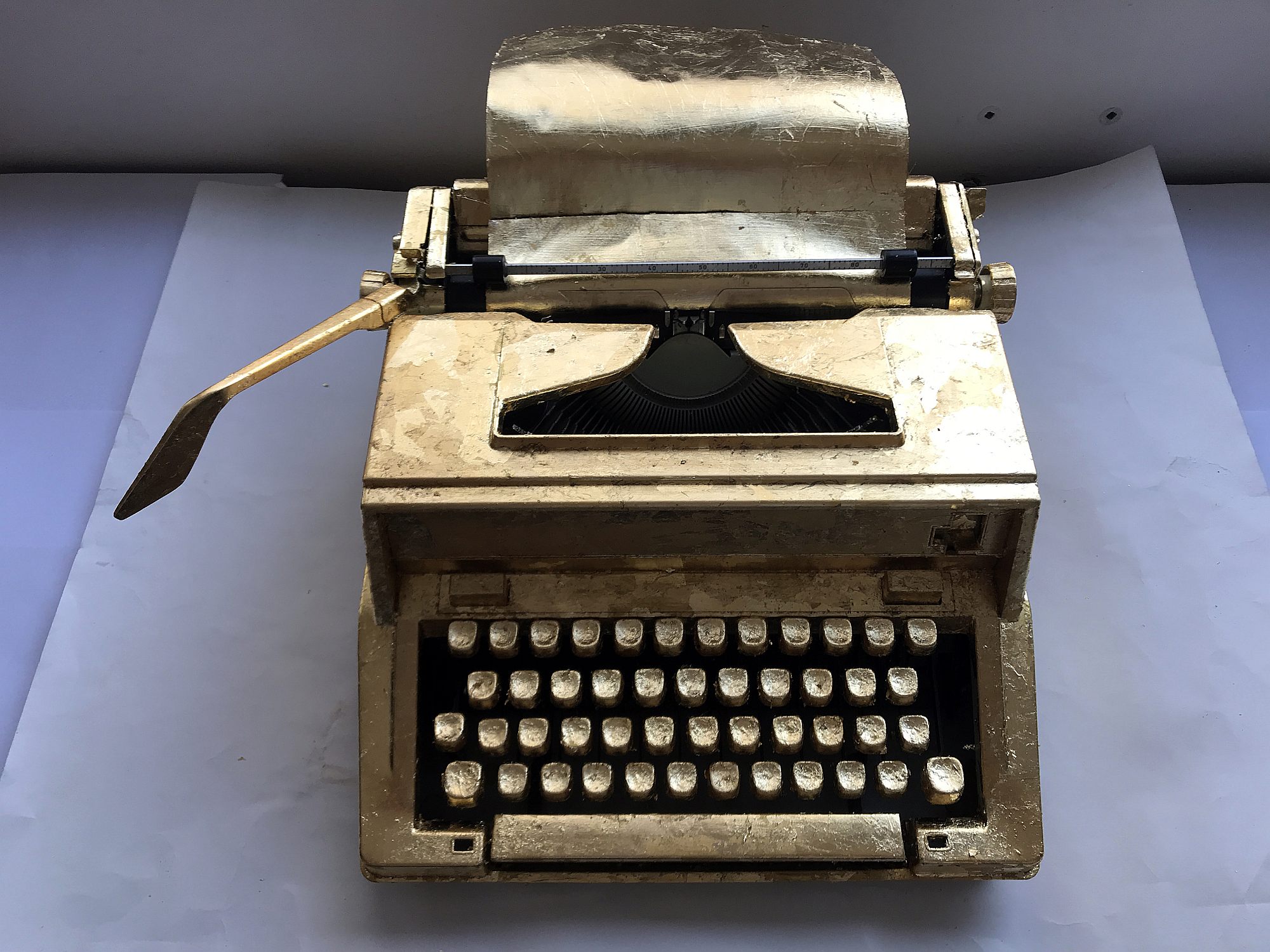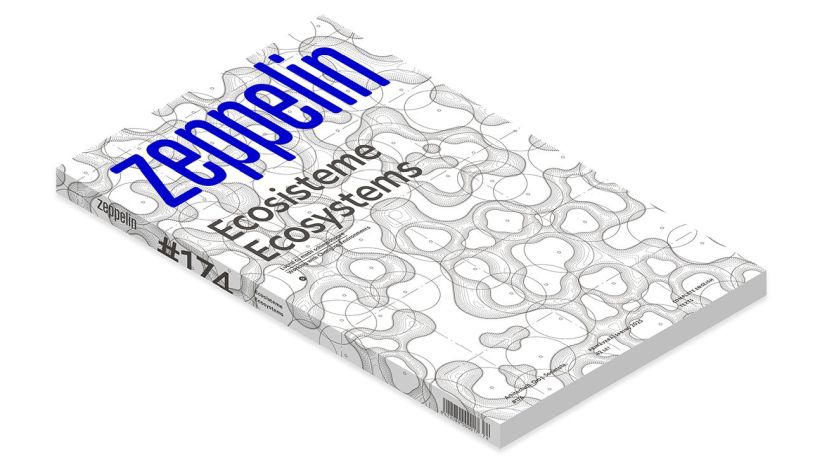Text, object, photo: Mugur Grosu
In our collective imaginary in Romania, the writer is still associated with the quill and pen. And, late at night, with weary lashes, they will still blow out the light bulb, out of sheer habit. This is no metaphor, those of us living under Communism used to write by candlelight, like bards of old times, because of daily power cuts. Once again because of Communism, here the typewriter is not symbolic for literature but has remained the embodiment of state authorities. During the “Golden Age” of Ceausescu, Decree no. 98 of 28 March 1983, stated that any typewriter had to get an approval from the police (Miliția). If your application was denied and you already had a typewriter, you had to donate it, sell it or put it up in consignment no later than 10 days thereafter. But if your application was successful, you had to submit to the authorities, every year, a form with samples of all the characters – lest you should think of typing manifestos on it, in which case you could be immediately identified. You could not even lend the typewriter without approval. Better yet, you could forget all about it. But let’s imagine you got round to getting both a typewriter, and the approval. What could you type on? An “application form”? Could there be anything more humiliating than this phrase, still in use, inducing the idea that you are not writing anything on your own, that you depend on the authority, whose approval you ned to seek? For that matter, in the official list of jobs, back then, there were only “train wagon writers” and not „literary writers”.
But I, thank the heavenly blue, had no idea about all these, I would go to the literary circle hosted by the Pioneers’ Palace in Constanta, winning, each year, the county phase of the creative competition, called, how else? – Young quills. That is as far as I would get, because I didn’t write patriotic verses – I couldn’t have done it, if I had wanted to. But I was yearning for validation and I kept on writing to magazines, but, with one small exception (a poem published when I was 14), no one would even consider me. As I was convinced that it was my handwriting which made me a dabbler beyond repair, I kept on dreaming of a typewriter, which I could only afford after the 1989 Revolution, when my father helped me out with part of the investment. That typewriter became my closest friend, and I mean that literally – I would often fall asleep with my head on it. And it also offered me my most radical literary experiment: I would no longer wait for validation, I would ‘publish’ myself on folding money – anything I would chance upon would also chance upon my typewriter – I anonymously typed hundreds of poems on money, my only consolation being that strangers would discover and read them. Fortunately, the inflation was skyrocketing, and money kept changing, so I cooled off rather quickly. Then I got my first electric typewriter, then my first computer, then my first book, then my first laptop, and so on. I started typing this text on my phone, waiting at traffic lights, on my bike – as you do. Nowadays, anyone can write anything, anywhere.
I only remembered all these because a cousin of mine recently called to ask if I could use a late aunt’s typewriter. I said yes, warding off the spectre of uselessness with the idea of perhaps making an installation. It turned out to be a 50-year old Hermes – a very popular brand with writers, from Kerouak and Sylvia Plath to Ionesco. This particular one had probably belonged to a state institution until it was thrown away, and then was probably recovered by said aunt, who also repainted the letters on its keys. Shortly after, the Goethe institute invited me to be part of a workshop with sculptor Alexandru Potecă, in the project “Heritage Contact Zone. Week of Contested Heritage“. Alexandru had made a very cool installation, The Golden Flat, where he had applied golden leaf on a flat full of ordinary things from the old regime, devoured by their own functionality. I gladly signed up, and put golden leaf on my typewriter – which was now devoured by uselessness. And an application form.



